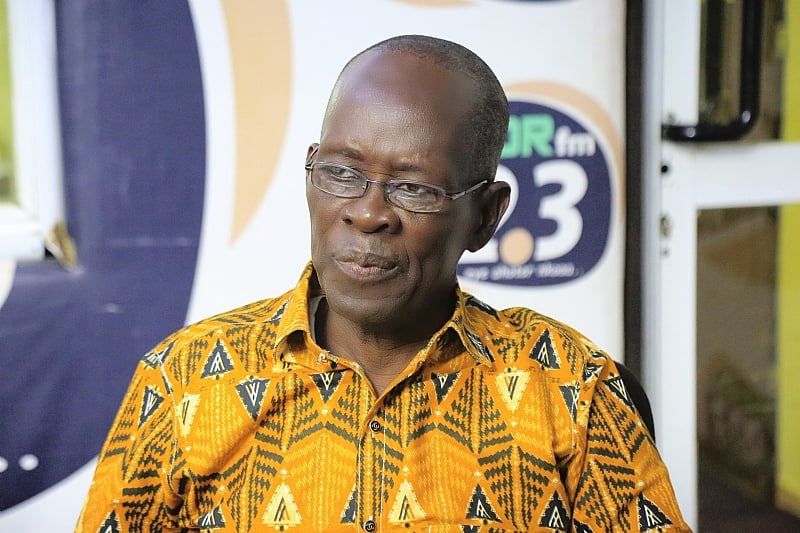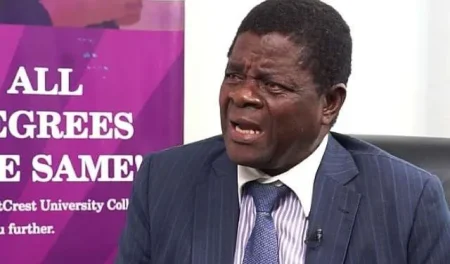The ongoing debate surrounding the future of Ghana’s Electricity Company of Ghana (ECG) has sparked fervent discussions among stakeholders, including labor unions, energy experts, and policymakers. At the heart of this debate lies the question of whether private sector participation is the key to unlocking ECG’s potential and resolving the persistent inefficiencies plaguing Ghana’s energy sector. Abraham Koomson, Secretary General of the Ghana Federation of Labour (GFL), a prominent voice in labor advocacy, has expressed his support for private sector involvement, contingent upon its ability to enhance service delivery and accountability. This perspective sheds light on a critical aspect of the debate, emphasizing the need for tangible improvements in ECG’s operations regardless of the chosen path forward.
Mr. Koomson’s support for privatization stems from his assessment of the deep-rooted issues hindering ECG’s performance. He identifies a lack of commitment and accountability as central to the company’s struggles, arguing that state-owned enterprises often fall prey to these shortcomings. This lack of accountability, according to Koomson, creates a breeding ground for inefficiency and underperformance, ultimately impacting the quality of service provided to consumers. Furthermore, he points to politically motivated decisions as a major impediment to ECG’s progress. These decisions, often driven by vested interests, manifest in various forms, including inflated procurement contracts, indiscriminate installation of unregistered meters, and the use of substandard equipment. Such practices not only undermine the financial viability of ECG but also compromise the safety and reliability of the power supply.
Adding another layer of complexity to ECG’s challenges is the issue of internal sabotage. Mr. Koomson expresses concern that some individuals within the system deliberately impede ECG’s performance, exploiting the perception of it being a government-run institution with limited consequences for misconduct. This deliberate sabotage further exacerbates the existing inefficiencies, hindering efforts to improve service delivery and financial stability. Coupled with this is the apparent lack of seriousness with which some employees approach their responsibilities, contributing to a culture of complacency and underperformance within the organization. These internal issues, combined with the external pressures of political interference and financial constraints, create a formidable challenge for ECG’s future.
In contrast to the prevailing issues within ECG’s current structure, Mr. Koomson highlights the potential benefits of private sector participation. He argues that private sector involvement could instill a much-needed sense of discipline and efficiency, leading to a substantial improvement in ECG’s operational performance. Private companies, driven by profit motives and market competition, are often more inclined to implement stringent performance standards and optimize their operations for maximum efficiency. This shift in operational culture could transform ECG into a more effective and reliable power distributor, ultimately benefiting consumers through improved service quality and reliability.
Beyond operational improvements, private sector participation could also address the issue of political interference that has long plagued ECG. Mr. Koomson believes that by introducing private sector involvement, the influence of political considerations in procurement and decision-making processes can be significantly reduced. This would pave the way for greater transparency and accountability, ensuring that decisions are based on merit and sound business principles rather than political expediency. The increased transparency and accountability inherent in private sector operations would also extend to stakeholders, providing greater insight into the company’s performance and fostering trust among consumers and investors.
The government’s recognition of the need for change is evident in the steps taken to explore private sector involvement in ECG’s operations. Acknowledging the persistent financial losses, operational inefficiencies, and political interference, the government has initiated the process of evaluating potential private-sector participation models. The inauguration of a seven-member committee tasked with assessing these models and recommending the best course of action demonstrates the government’s commitment to finding a sustainable solution for ECG’s future. This committee plays a crucial role in navigating the complex landscape of privatization options and ensuring that the chosen path aligns with the long-term interests of Ghana’s energy sector.
The ongoing debate regarding ECG’s future underscores the critical importance of finding a sustainable solution to address the company’s persistent challenges. The voices of stakeholders, including labor unions, energy experts, and policymakers, are crucial in shaping the direction of this transformative process. Mr. Koomson’s perspective, as the Secretary General of the GFL, provides valuable insight into the potential benefits of private sector participation, emphasizing the need for improved efficiency, accountability, and reduced political interference. The outcome of this debate will undoubtedly have profound implications for Ghana’s energy sector and the country’s overall economic development. Finding the right balance between public interest and private sector efficiency will be key to unlocking ECG’s potential and securing a brighter future for Ghana’s energy landscape.














